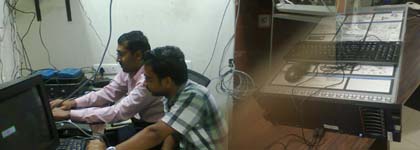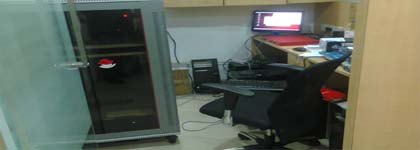Server Assembling and Testing in Our LAB

Functionality is usually tested in three stages: a unit or component test, often performed by programmers; a system test, of the complete system in a controlled environment performed by a dedicated test resource; finally, an acceptance test under close to production conditions, often performed by users. The objectives, techniques and responsibility for these three test stages are directly comparable to test stages in more traditional host-based systems.
Internetworking Deployment Solutions (IDS)
DSI has created a suite of design and productivity tools, know as TRaDE (Technology Refresh and Deployment Empowerment) Tools, that run on distributed computing platforms using Red Hat Server and Windows Server operating systems to address the burgeoning demand for the planning, configuration, integration, and deployment of networking technologies including routers, switches, PCs, servers, and enterprise applications. TRaDE is comprised of two distinct tool sets; ICON for internetworking devices and PC GenIE for PCs. By leveraging our documented process methodology and proprietary TRaDE software tools, the company efficiently manages many otherwise labor intensive implementation services, significantly reducing the time and costs associated with these services





